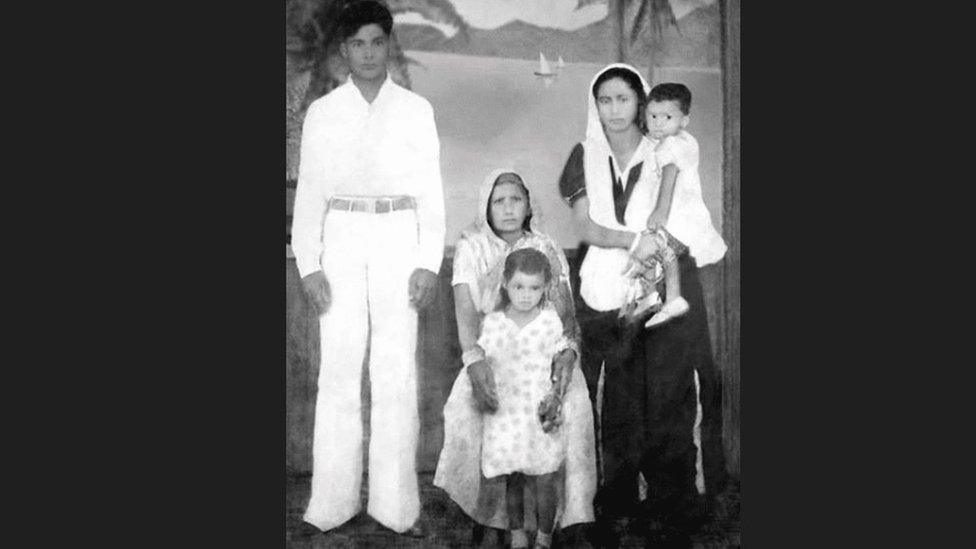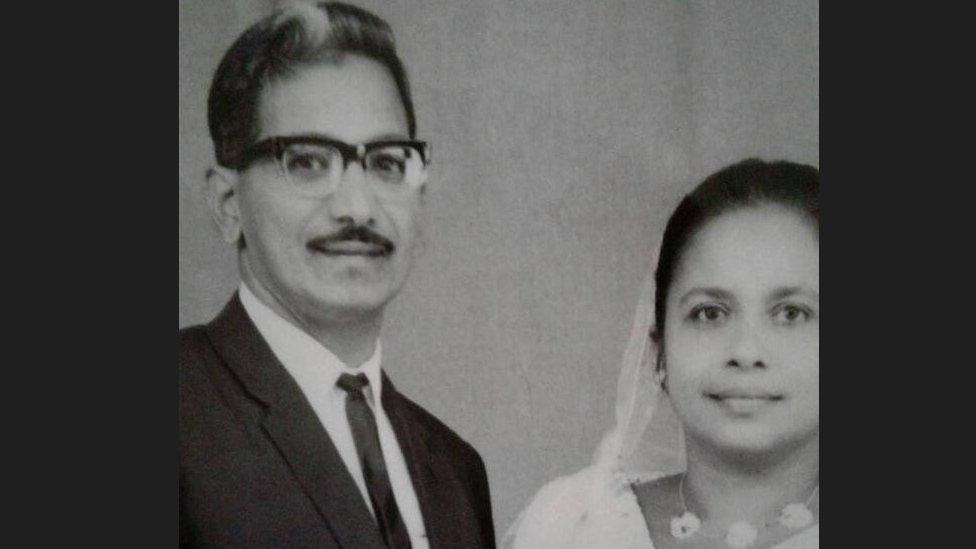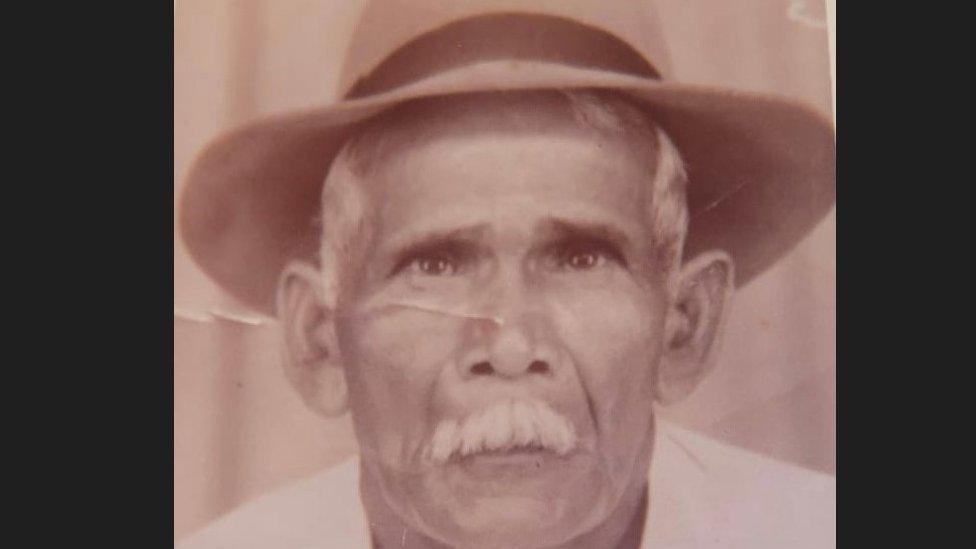Midwife reveals family history of Indian indentureship
- Published

Ms Poinen's great grandmother Rajanee (sitting) left India at the age of 22 for Trinidad in 1900
A midwife whose ancestors were used as cheap labour after the abolition of slavery has spoken of their legacy.
Pat Poinen enlisted the help of a genealogist after becoming curious about relatives in old photographs.
She found out that her great grandmother had left India in 1900 on a so-called indentureship headed for Trinidad to escape poverty.
Ms Poinen is hosting a talk on Indian indentureship at Newcastle's Discovery Museum on Sunday at 14:00 BST, external.

Ms Poinen's knew of the history of her parents (pictured) but wanted to go back further and learn more about the family's roots
Under colonial rule, India's population provided the British Empire with a ready source of cheap and mobile labourers, according to the National Archives, external.
They "agreed to be indentured labourers to escape poverty and famine with many bringing their families to be part of sugar plantations in Africa and the Caribbean", it said.
The demand for Indian indentured labourers had increased after the abolition of slavery in 1834.
Ms Poinen, née Jhagroo, who lives in Darlington, asked for help from renowned genealogist Shamshu Deen to find out more about her great-grandmother Rajanee who went to Trinidad aged 22, as well as others like her.

A photograph of Ms Poinen's grandfather Jhagroo Naipaul - one of many to spark her curiosity
She said: "Knowing one's family roots is important, it frames your present and the future from the past.
"My quest to research my family history came from a curiosity to learn about their story which in turn framed my own story.
"I contacted Shamshu Deen and the rest is history.
"Both my maternal and paternal great grandparents boarded ships from Calcutta to seek new beginnings and to work on sugarcane plantations in Trinidad.
"Ships that transported indentured Indians were built in the North East - this history remains largely untold."
Ms Poinen added: "It is a great gift to share with all my relatives and leave a legacy for future generations.
"They sacrificed everything to survive life in a new country with numerous hardships."

Follow BBC North East & Cumbria on Twitter, external, Facebook, external and Instagram, external. Send your story ideas to northeastandcumbria@bbc.co.uk, external.